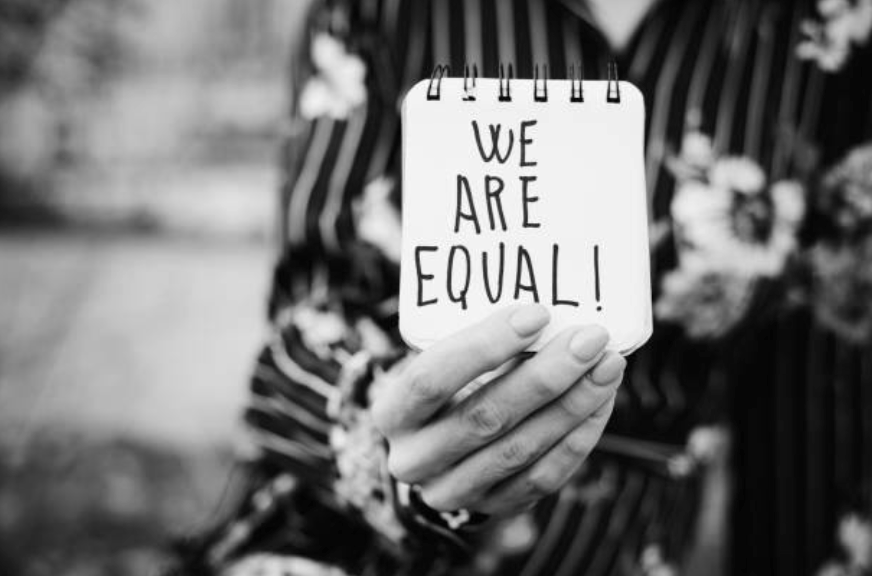Race Discrimination In The Workplace
News
3 years ago

Many people experience discrimination in the workplace as a result of their race. The Equality Act 2010 protects people against discrimination at work. It is against the law to discriminate against someone based on their race and the Act includes a person’s colour, nationality or ethnic or national origins in its definition of race.
Types of Discrimination
The following prohibited conduct is classed as discrimination:
1. Direct Discrimination – this is where a person is treated unfavourably because of their own race, the race of someone they associate with or how their race is perceived. For example, if someone is not employed, dismissed, offered poorer terms of employment or not given the same training or promotion opportunities solely because of race this is direct discrimination.
2. Indirect Discrimination – this is where a “provision, criterion or practice” of a workplace puts a person of certain race at a disadvantage when compared to a person who is not of the same race. This would usually include a policy, procedure, rule or requirement such as recruitment selection criteria or dress codes.
3. Harassment – this is where a person is subject to unwanted conduct because of their race and this conduct violates their dignity or created an intimidation, hostile, degrading, humiliating environment. For example, bullying, nicknames, threats, jokes or banter, gossip or insults based on a person’s race could amount to harassment and discrimination.
4. Victimisation – this is where a person is treated unfavourably because they have either made allegations of discrimination or supported a claim of discrimination.
What can an employer do to prevent discrimination?
An employer could be held liable for the actions of their employees so it is important for an employer to take every step to prevent discrimination in the workplace. Some measures that an employer can take are;
• To have a fair and open recruitment process
• To provide equality training for all staff members
• To provide a handbook with clear policies on equality
• To make sure any dress code does not unfairly disadvantage a certain group
• To take all complaints of discrimination seriously
• To make sure to avoid any racial stereotyping or the use of terminology that may offend a certain group even if the intention was a joke or ‘banter’.
How to take action against discrimination
Whether you wish to deal with your complaint of discrimination may depend on many circumstances
Informal action could involve an initial discussion with your employer about the discrimination you believe you might have experienced who may then talk to those involved to reach a resolution. This course of action may be appropriate if the matter is relatively straightforward and you want a quick resolution with as little stress as possible and without damaging any work relationships.
Formal action involves your employer’s grievance procedure and will usually involve a formal investigation and hearing. If the allegation of discrimination is serious, a formal approach may be required. Your employer should have a clear policy of who to complain to if you experience discrimination and what the process will involve.
If you are unhappy with how your complaint has been dealt with by your employer or cannot reach a resolution the next step is to raise an action with the Employment Tribunal. A claim to the Employment Tribunal must be made within three months minus one day of this discrimination taking place otherwise it will not be considered so it is important not to delay in making a complaint.
The first step when making a complaint to the Employment Tribunal is to contact Acas and inform them you intend to take you dispute to an Employment Tribunal. They will then encourage you to use their free early conciliation procedure to attempt to resolve the matter without going to the Tribunal. If you choose not to use the Acas early conciliation procedure or it does not provide a resolution you will be issued a certificate that you are required to provide to the Tribunal before raising a claim. This will usually extend the three-month deadline by another month. You can then make a formal claim to the Employment Tribunal who will decide if there has been discrimination and what the remedy should be. Remedies could involve compensation, re-employment, more work hours etc.
If you have any concerns about discrimination at work or any other employment law related matters, please get in contact with us on 01334 654081.
You can find links to:
Equality Act 2010:
https://www.legislation.gov.uk/ukpga/2010/15/contents
Acas website:
https://www.acas.org.uk/